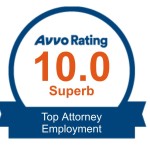Overtime Laws
GENERAL LAWS AND INFORMATION
What Time (Hours Worked) Must be Compensated?
Under the Act, an employee is entitled to pay for all hours worked. “Hours worked” within a workweek generally include all time in which an employee is necessarily required to be physically present on the employer’s premises, on duty, or at a prescribed work place. Whether other time spent on or off of the employer’s premises and time in which an employee is not actively working constitutes compensable time under the FLSA presents a more complex issue.
On-Call Time
An employee who is “on call” and is required to remain on the employer’s premises during the on-call period is actually working. However, an employee who remains on-call at home, or who is allowed to leave a message where the employee can be reached, is generally not considered to be working. However, many courts have held that an employee may still be working while “on call” even while not on the employer’s premises when additional constraints are placed on the employee’s freedom.
Waiting Time
Whether employees must be compensated for “waiting time” depends on if the employee is “engaged to wait” or “waiting to be engaged.” Evaluating whether employees are engaged to wait—and are entitled to be compensated for this time—depends on the particular circumstances. The Department of Labor provides the following example: “[A] secretary who reads a book while waiting for dictation or a fireman who plays checkers while waiting for an alarm is working during such periods of inactivity. These employees have been “engaged to wait.”
Attending Employer-Sponsored Lectures, Meetings, and Training Programs
Attendance at lectures, meetings, training programs and similar activities need not be considered compensable hours worked as long as the following criteria are met: “(a) Attendance is outside of the employee’s regular working hours; (b) Attendance is in fact voluntary; (c) The course, lecture, or meeting is not directly related to the employee’s job; and (d) The employee does not perform any productive work during such attendance.” See 29 C.F.R. § 785.27. Thus, when the activity satisfies all four requirements listed above, the time is not considered compensable working time.
Travel Time
Whether an employee’s time spent traveling is compensable depends on the type of traveling. Employees who travel from their homes to work and travel from work back to their homes each day are not entitled to compensation for this travel. Employees whose principal job duties involve traveling between different locations or job sites during the workday are entitled to compensation for the time spent traveling.
Employees who travel away from home overnight are considered to be engaging in “travel away from home.” Travel away from home is compensable work time when it overlaps the employee’s normal workday. The time is considered hours worked on regular working days during normal working hours and also during those corresponding hours on nonworking days. However, excluded from this category of compensable time is hours spent traveling outside of regular working hours as a passenger on an airplane, train, boat, bus, or automobile
Sleep Time
An employee who works less than a 24-hour shift is considered to be working, regardless of whether that employee is permitted to sleep or engage in other non-worked related activities during that time. An employee who is required to be on duty for 24 hours or more need not be compensated for the entire amount of time if the employee and employer agree that the employee will exclude from hours worked “bona fide regularly scheduled sleeping periods” of no more than 8 hours. However, the employee must be provided with adequate sleeping facilities furnished by the employer. In addition, the employee must be able to actually enjoy an uninterrupted night’s sleep on most occasions, which is considered at least 5 hours of sleep.
Meal Breaks and Rest Periods
Bona fide meal periods generally need not be compensated. These periods are generally thirty minutes or longer. However, if the employee is not completely relieved of job duties during the meal break, it is not considered a bona fide meal period and the employee must be compensated for this time.
Employees who take brief rest periods—generally lasting twenty minutes or less—are still considered to be working during this time and are therefore entitled to compensation. However, if employees take unauthorized rest periods that extend beyond the permitted time period, the employees need not be compensated for this time.
To find out if you should be compensated for certain time, take our Survey.



